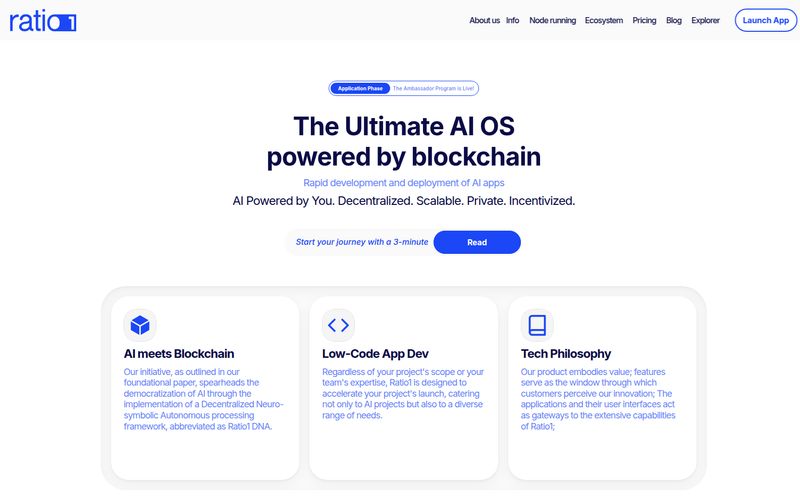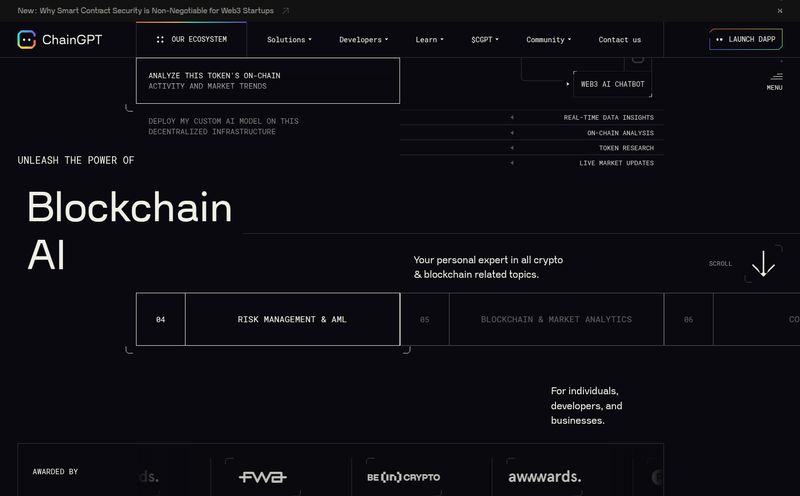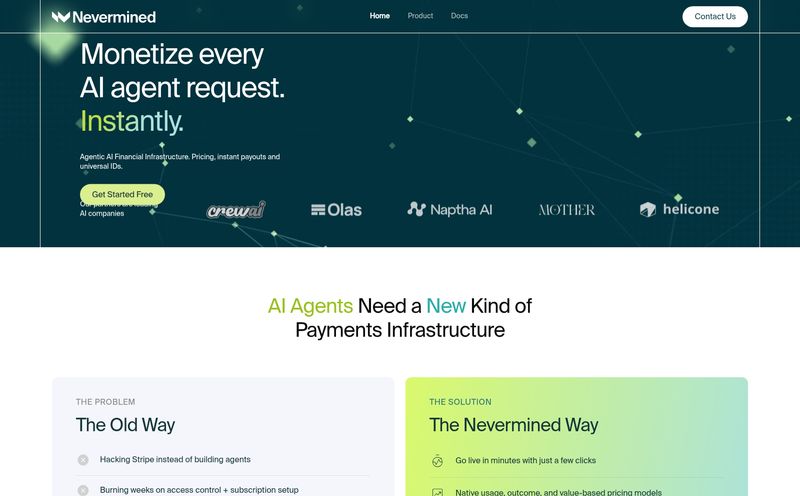If you're in the SEO or digital marketing game, your brain probably feels like a browser with 100 tabs open. All the time. We're constantly chasing trends, analyzing data, and trying to appease the ever-fickle Google gods. Finding a moment to just… breathe? It feels like a luxury we can't afford.
So when I stumbled across a platform with the tagline "Breathe Meditation & Earn," my inner cynic and my burnt-out inner self had a very loud argument. Get paid to meditate? In crypto? It sounds like something concocted in a Silicon Valley fever dream, a mashup of the two most hyped (and often misunderstood) technologies of the decade: AI and Web3.
The platform is called PUTI. And honestly, I had to know more. Is this the future of mental wellness, or just another gimmick destined for the digital graveyard? Let’s get into it.
What in the World is PUTI?
At its core, PUTI is a mental well-being app that blends two very distinct features. First, it guides you through meditation, and for completing your daily sessions, it rewards you with USDT. For those not deep in the crypto rabbit hole, USDT is a stablecoin, which means its value is pegged to the US dollar. So, you're earning something a lot more stable than some random, volatile altcoin, which is a smart move on their part.
Second, it offers an AI agent. Think of it as a little AI buddy in your pocket, designed to help you talk through worries and life’s many questions. It's not just a meditation timer; it's positioning itself as a full-on mental wellness sidekick. I saw they even got a feature on Product Hunt, which in our world, gives it a bit of early-stage credibility. It means they’re at least confident enough to put it in front of a crowd of discerning tech folks.

Visit PUTI
The “Breathe to Earn” Model: A Gimmick or a Game-Changer?
The whole “X-to-Earn” thing has had a… colorful history. We all remember the meteoric rise and fall of play-to-earn games. And then there was the “move-to-earn” craze with projects like STEPN, which got a lot of us buying virtual sneakers and jogging around the block. The big question has always been about sustainability.
Can a financial incentive truly build a lasting, healthy habit? My gut says… maybe. For some people, it absolutely can. Think about it. The hardest part of forming a new habit is just starting. If the promise of earning a few bucks in USDT is the nudge someone needs to finally sit down and meditate for 10 minutes, is that such a bad thing?
I see it as a form of gamification for your mind. It’s a bit like getting a gold star in kindergarten, but instead of a sticker, it’s a little shot of espresso for your crypto wallet. The real test, of course, is what happens when the rewards aren't as high, or if a user decides the financial gain isn't worth the time. Does the meditation habit stick? That's the billion-dollar question.
Let's Talk to the AI Therapist in Your Pocket
Okay, so earning crypto for finding your zen is one thing. But the AI agent is where things get really interesting, and potentially a little dicey. The promise is an AI that helps you with “any questions and worries you encounter in life.”
This is a bold claim. We've all had frustrating conversations with customer service chatbots that can't understand a simple request. The fear is that a mental wellness AI, if poorly designed, could do more harm than good by giving generic or just plain bad advice. The platform's own materials admit that the AI's effectiveness is a major variable.
However, the potential upside is huge. Imagine having a non-judgmental space to vent or organize your thoughts at 3 AM when your brain won't shut off. For people who are anxious about talking to a human therapist, or can't afford one, this could be an incredible first step. It could be the difference between spiraling and finding a moment of clarity. It all comes down to the execution. Is this a truly empathetic, well-trained AI, or is it just ChatGPT with a purple logo? I couldn't find a lot of detail on their training data or methodologies in the whitepaper, which leaves me curious.
My Honest Thoughts: The Good, The Bad, and The Blockchain
After poking around, I've got some feelings. This isn't your standard app review; this is a whole new category of tool.
The Upside of PUTI
I have to give them credit for the innovative approach. Smashing mindfulness and web3 together is a bold experiment. The biggest win, in my opinion, is the initial motivation. It's a clever hook to draw people in. And the use of an AI for constant, on-demand support is an interesting solution to the accessibility problem in mental health. It’s not a replacement for professional help, but it could be a fantastic supplement or entry point.
Some Points of Caution
On the flip side, relying on USDT rewards won’t work for everyone. Many people are still very skeptical of crypto, and the idea of linking their mental health practice to a digital wallet might feel… weird. And that’s a fair point.
My biggest hesitation remains with the AI's actual quality. Without rigorous testing and transparency, its' a black box. A good AI could be transformative; a bad one could be trivial or even unhelpful. I also couldn't find a clear pricing page. Is it free? Is there a subscription? Will I need to buy a 'meditation NFT' down the line? This lack of clarity is a bit of a red flag for me as a consumer.
So, Who Is This Actually For?
I don't think PUTI is for everyone, and that's okay. I see a few specific groups who might get a real kick out of this:
- The Web3 Enthusiast: Someone already into crypto who wants to add a “meditate-to-earn” stream to their portfolio.
- The Crypto-Curious: A person who’s been wanting to dip their toes into crypto without having to invest a bunch of money upfront. Earning it through a simple daily task is a pretty low-risk way to start.
- The Habit Hacker: Anyone who loves gamification and needs that extra push to finally build a consistent meditation practice.
Who is it probably not for? The wellness purist who wants to keep their mindfulness practice completely separate from their finances. If you're a die-hard user of apps like Calm or Headspace and the idea of a crypto wallet gives you a headache, this might not be your cup of tea.
Frequently Asked Questions about PUTI
What is PUTI?
PUTI is a new platform that combines web3 technology and artificial intelligence for mental well-being. It allows users to earn USDT (a stablecoin cryptocurrency) for completing daily meditation tasks and offers an AI agent to help talk through life's worries.
How do you earn rewards on PUTI?
You earn rewards primarily by engaging in the app's core feature: daily meditation. By completing these sessions as outlined in the app, you are rewarded with USDT directly to your connected wallet.
Is the AI agent a real therapist?
No, and this is an important distinction. The AI agent is a support tool designed to provide a space for you to articulate your thoughts and concerns. It is not a substitute for professional medical advice or therapy from a licensed professional.
Do I need to be a crypto expert to use PUTI?
From the looks of it, you'll need some basic familiarity, like setting up a digital wallet to receive the USDT rewards. However, the platform seems designed to make the process as straightforward as possible, potentially serving as an entry point for newcomers.
What does PUTI cost to use?
This is currently unclear. I could not find a dedicated pricing page on their website. It could be free to start, follow a subscription model, or involve other web3 elements. I'd recommend checking their official 'How to play' guide or Whitepaper for the most current details.
My Final Verdict on PUTI
So, where do I land on PUTI? I'm cautiously optimistic, with a heavy dose of curiosity. It’s a strange, fascinating beast. It's trying to solve a real problem—the difficulty of maintaining mental well-being in our chaotic digital world—with some of the most cutting-edge (and hyped) tools available.
The success of this entire project will ride on two things: the long-term sustainability of its economic model and the genuine quality of its AI. If they can nail both, they might just be onto something special. If not, it'll be another interesting experiment that couldn't quite stick the landing.
For now, I'm just happy to see new ideas in the mental health space. In an industry as demanding as ours, anything that encourages us to pause and take a damn breath is a win in my book. Whether you get paid a little crypto for it or not.



